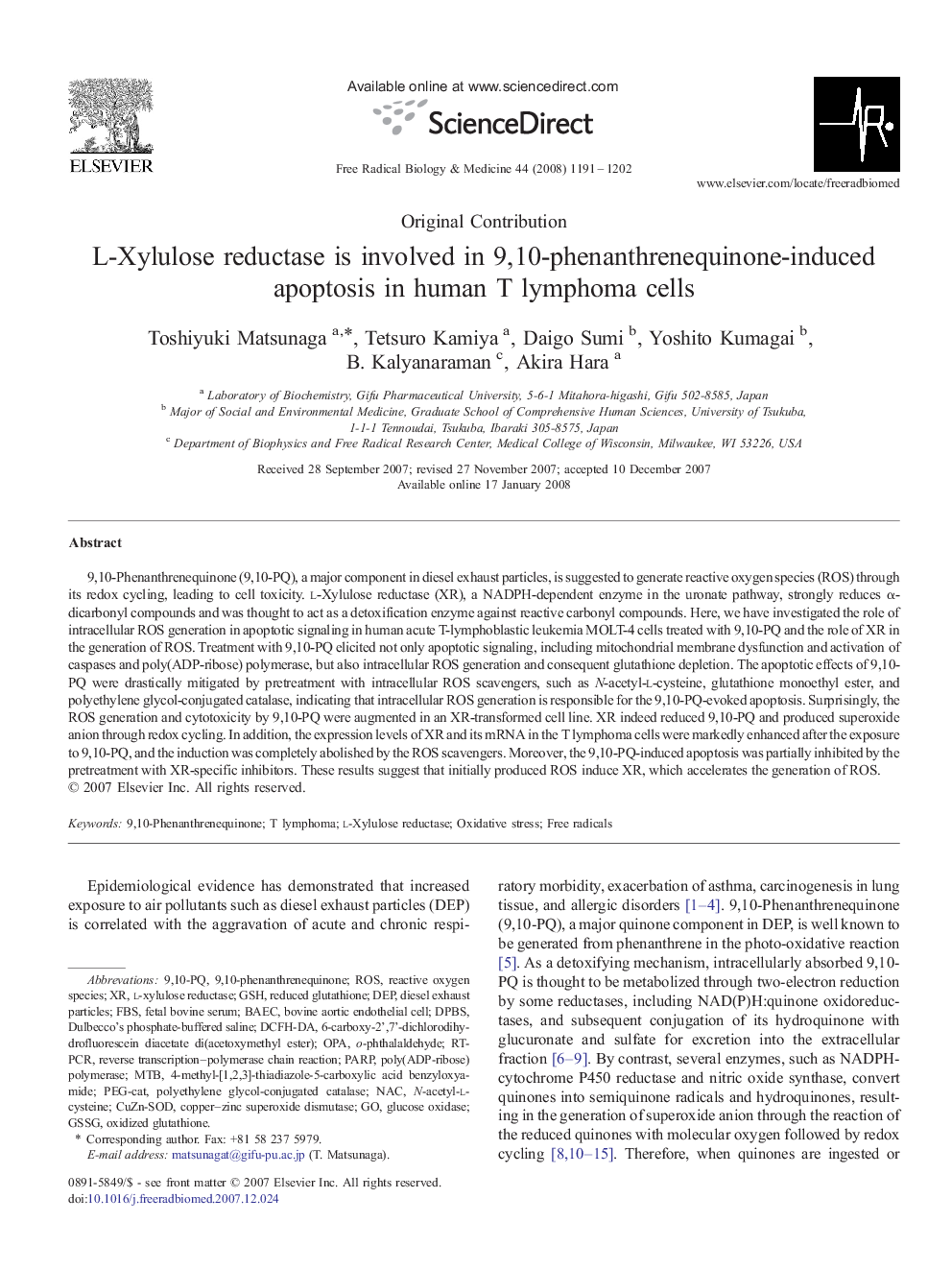| کد مقاله | کد نشریه | سال انتشار | مقاله انگلیسی | نسخه تمام متن |
|---|---|---|---|---|
| 1910803 | 1046787 | 2008 | 12 صفحه PDF | دانلود رایگان |

9,10-Phenanthrenequinone (9,10-PQ), a major component in diesel exhaust particles, is suggested to generate reactive oxygen species (ROS) through its redox cycling, leading to cell toxicity. l-Xylulose reductase (XR), a NADPH-dependent enzyme in the uronate pathway, strongly reduces α-dicarbonyl compounds and was thought to act as a detoxification enzyme against reactive carbonyl compounds. Here, we have investigated the role of intracellular ROS generation in apoptotic signaling in human acute T-lymphoblastic leukemia MOLT-4 cells treated with 9,10-PQ and the role of XR in the generation of ROS. Treatment with 9,10-PQ elicited not only apoptotic signaling, including mitochondrial membrane dysfunction and activation of caspases and poly(ADP-ribose) polymerase, but also intracellular ROS generation and consequent glutathione depletion. The apoptotic effects of 9,10-PQ were drastically mitigated by pretreatment with intracellular ROS scavengers, such as N-acetyl-l-cysteine, glutathione monoethyl ester, and polyethylene glycol-conjugated catalase, indicating that intracellular ROS generation is responsible for the 9,10-PQ-evoked apoptosis. Surprisingly, the ROS generation and cytotoxicity by 9,10-PQ were augmented in an XR-transformed cell line. XR indeed reduced 9,10-PQ and produced superoxide anion through redox cycling. In addition, the expression levels of XR and its mRNA in the T lymphoma cells were markedly enhanced after the exposure to 9,10-PQ, and the induction was completely abolished by the ROS scavengers. Moreover, the 9,10-PQ-induced apoptosis was partially inhibited by the pretreatment with XR-specific inhibitors. These results suggest that initially produced ROS induce XR, which accelerates the generation of ROS.
Journal: Free Radical Biology and Medicine - Volume 44, Issue 6, 15 March 2008, Pages 1191–1202